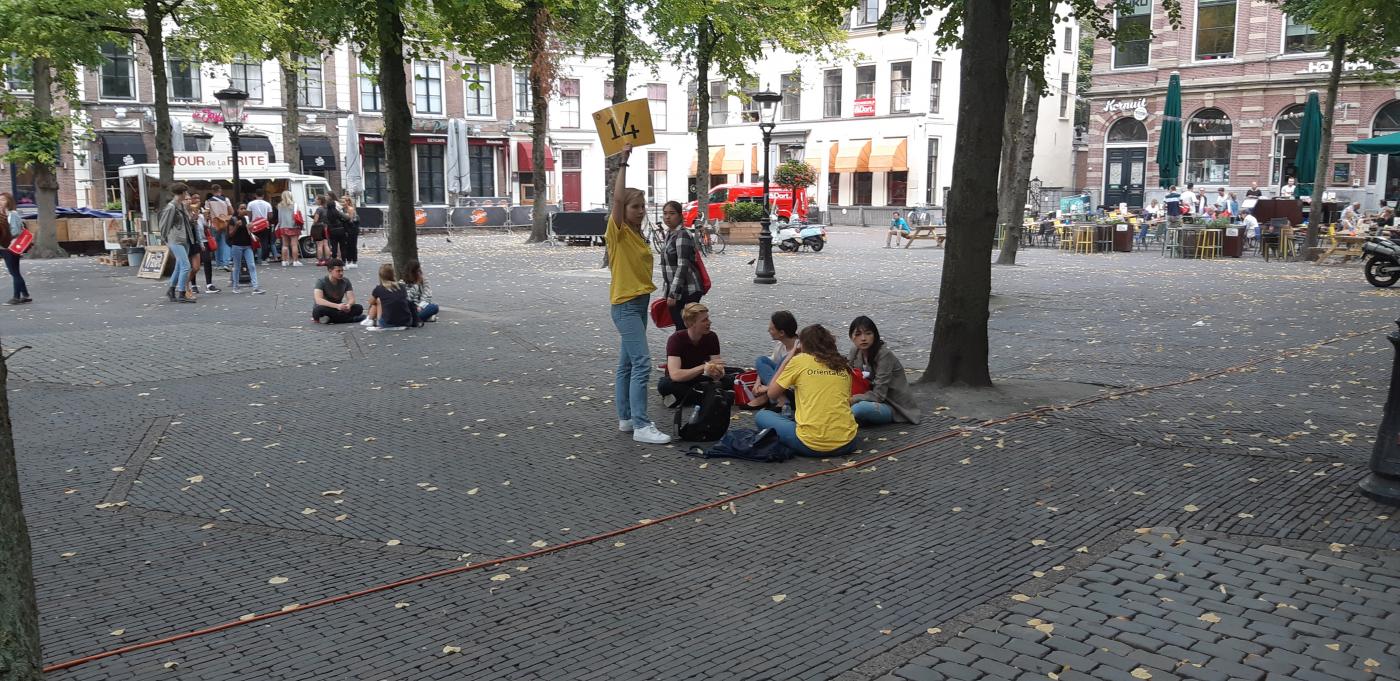Influx of international students to be restricted
Universities want to ditch language test and come up with own plan

Dutch universities on Tuesday evening launched a plan to rebalance their own inflow of international students in undergraduate programmes. All Bachelor’s in Psychology will become Dutch again, the universities promise. A numerus fixus will be introduced for English-language variants of a programme to allow for selection. Agreements on numbers will be made at national level. For Psychology, there has been a numerus fixus for Dutch programmes for years. This will be maintained.
Less international students
The measures now proposed go beyond the universities' earlier proposals of February 2024. The universities expect about 2,000 fewer international bachelor students to enter from next year compared with the "peak year" of 2022-2023. In that academic year, there were around 19,000 international bachelor students. In fact, the decline has already started: there would be about 700 fewer than in the current academic year.
The arrival of foreign students is causing problems here and there, they admit. Some courses are getting too big, and in some cities there is not enough student accommodation.
No language test
The universities have one condition. They want the Toets Anderstalig Onderwijs (TAO), a language test, from the current bill not to apply to existing programmes.
In effect, the cabinet wants to put all English-language undergraduate education through the sieve: is it effective or could it be better in Dutch? Every programme would have to justify itself. This is part of the bill Internationalisation in Balance.
According to the universities, this test is unworkable and costs a lot of time and money. It will only create bureaucracy and uncertainty in higher education: it will soon be a few years before you know which programmes are still available, they argue. However, the test could be applied to new courses.
As long as the threat of a language test hangs in the air, the universities themselves will not start working on it. Otherwise, they could be faced with "a second form of amputation" after the self-regulation, says UNL president Caspar van den Berg in an online press conference. Things would go faster and better if politicians left them alone.
No numbers or percentages
Exactly how much the individual universities will be sacrificing? It will go ‘pro rata’, says Anton Pijpers, president of Utrecht University. But precise numbers and percentages per university he does not want to mention. After all, some programmes will shrink, he explains, while others will be allowed to grow.
The latter involves bachelor's programmes in sectors such as STEM and engineering, AI and education, where the Dutch labour market has a crying shortage. For that, they want to be able to recruit more internationals.
By reducing the number of English-language programmes (and thus the number of international students), the Dutch political parties PVV, VVD, NSC and BBB initially wanted to cut 293 million euro a year. After a compromise with the Christian opposition and JA21, this became 168 million euros a year, more than 60 per cent of which would go to universities and the rest to universities of applied sciences.
Dutch programma Economics
Utrecht University has relatively few undergraduate programmes in English. There are 12 Bachelor's programmes in English, four of which also have a Dutch track. In Utrecht, the university's plans mainly concern the Economics & Business Economics programme.
This bachelor will have a Dutch-language variant in addition to the English-language programme from the 2027 academic year. This plan has already been discussed within the university. At that time, the aim was to introduce it in 2026, but this has now been postponed by one year.
The Dutch-language Bachelor's programme will be freely accessible. The English-language programme will have a numerus fixus. The level of this numerus fixus will be agreed with the other universities.
Extra investment
Dean Elaine Mak of the Faculty of Law, Economics, Governance & Organisation (Rebo) briefed the Faculty Council and the Bachelor's this week. She says the Dutch-language programme will also have more Dutch-focused content. But there will also be room for about a third of the programme to be taught in English.
Both Dutch and international students can apply for the English-language programme. At present, a third of the students are international. It is important to us that the mix of national and international students is maintained. In this way we are working towards an international classroom.
The Dutch course is an extra investment in times of austerity. According to Mak, scrapping is not the only way to be financially healthy in the long run. Sometimes you have to invest because it is good for the long term," she says. The current investment is partly funded by the Board of Governors. Because of upcoming discussions with the board, Mak is reluctant to say how much money is involved.
Language skills
In addition to plans to reduce the number of international students, the universities want to improve the Dutch language skills of students and staff. To this end, the universities are offering courses so that staff can reach a minimum level. International students are staff also offered modules to improve their Dutch. Improving Dutch skills should also ensure that more international students continue to live and work in the Netherlands after graduation.